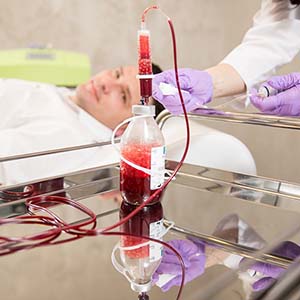ADHD
ADHD (Attention Deficit Hyperactivity Disorder)
What you need to know about ADHD
(Attention Deficit Hyperactivity Disorder)
A mental health condition known as attention deficit hyperactivity disorder (ADHD) can lead to unusually high levels of hyperactivity and impulsive conduct. Additionally, people with ADHD may struggle to concentrate on a single job or maintain their stillness for extended amounts of time.
Inattentiveness and fluctuations in energy are common. This occurs more frequently and to a greater extent for someone with ADHD compared to those without the disorder. It might have a big impact on their schoolwork, employment, and home life.
ADHD can affect both adults and children.
Symptoms of ADHD
There are many different behaviours connected to ADHD. Among the more typical ones are:
- Having difficulty concentrating or focusing on tasks
- Being forgetful about completing tasks
- Being prone to distraction
- Having trouble staying seated
- Interrupting others as they speak
Different characteristics of ADHD, such as hyperactivity, impulsivity, or difficulties focusing, may have distinct signs and symptoms.
An individual who is impulsive and hyperactive may:
- Find it challenging to sit still or stay sitting, as in a class
- Having difficulty playing quietly or working quietly
- Excessive talking
- It is challenging to wait their turn
- Interrupting someone else while they are speaking, playing, or working
Someone who is having trouble concentrating might:
- Make a lot of mistakes or forget things whether working or studying
- Find it challenging to stay focused whether reading, talking, or listening
- Difficulty planning daily tasks
- Lose things a lot
- Be easily distracted by insignificant events occurring around
You or your child may experience some or all of these symptoms if you or they have ADHD. The type of ADHD you have will determine the symptoms you experience. Discover a list of common children’s ADHD symptoms.
Diagnosis & Testing for ADHD
There isn’t a single test that can diagnose ADHD in either you or your child. An adult ADHD diagnosis cannot be determined just on a single test, according to many doctors, despite the advantages of a new test that was highlighted in a 2017 study.
A doctor will evaluate any symptoms you or your kid have experienced in the preceding six months in order to determine a diagnosis.
Teachers or family members will likely be consulted, and your doctor may review symptoms using checklists and rating scales. To look for further health issues, they’ll also perform a physical examination. Learn more about the capabilities and limitations of the ADHD rating scales.
Speak to a doctor about having an assessment if you think you or your kid may have ADHD. You can also speak with your child’s school counsellor. Children are frequently evaluated in schools for health issues that can compromise their academic achievement.
Give your doctor or counsellor any notes or observations you have regarding your behaviour or the behaviour of your child for the assessment.
They may recommend an ADHD specialist to you or your child if they have a suspicion of ADHD. They might also advise scheduling a consultation with a neurologist or psychiatrist, depending on the diagnosis.
Causes of ADHD
Despite how widespread ADHD is, medical professionals and researchers are still unsure of its root causes. It is believed to include neurological causes. Genetics might also be a factor.
According to research, dopamine deficiency may contribute to ADHD. A substance called dopamine aids in the transmission of signals from one nerve to another in the brain. It contributes to the onset of emotional reactions and motions.
Other studies point to a structural variation in the brain. According to research, people with ADHD have a smaller volume of grey matter. Grey matter includes the parts of the brain that aid in:
- Speech
- Self-control
- Making decisions
- Muscle control
Potential causes of ADHD, including smoking while pregnant, are currently being researched. Find out more on the various causes and risk factors for ADHD.
Types of ADHD
The APA has divided ADHD into three forms in order to improve the consistency of diagnoses. These personalities tend to be either primarily inattentive, primarily hyperactive-impulsive, or both.
Predominantly inattentive
As the name implies, those who have this form of ADHD struggle greatly to focus, complete work, and follow directions.
Because they don’t frequently interrupt class, experts believe that many kids with the inattentive form of ADHD may not receive a correct diagnosis. According to research, girls with ADHD are more likely to experience this.
Predominantly hyperactive-impulsive type
Those who have this form of ADHD are typically impulsive and energetic. This may consist of:
- Fidgeting
- Interrupting others as they speak
- Unable to wait for their turn
With this form of ADHD, inattention is less of a problem, but those who have primarily hyperactive-impulsive ADHD may still have trouble focusing on tasks.
Combined hyperactive-impulsive and inattentive type
The most typical form of ADHD is this one. This mixed form of ADHD manifests in both inattentive and hyperactive symptoms in its sufferers. These include a lack of focus, a propensity for impulsivity, and an abundance of energy and activity.
Your or your child’s treatment will depend on the type of ADHD they have. Your treatment may alter over time depending on the type you have. Study up on the three different forms of ADHD.
ADD vs. ADHD
It’s possible that you’ve heard the terms “ADD” and “ADHD” and wondered how they vary.
Attention deficit disorder, also known as ADD, is an old term. In the past, it was used to characterise people who struggle with attention but are not overly busy. Today, the term “predominantly inattentive” ADHD is used in place of the term “ADD.”
The current umbrella term for the illness is ADHD. Sir Alexander Crichton, a Scottish physician, observed in 1798 that certain people were easily distracted and unable to concentrate on their tasks the way others could. He claimed that these signs appeared at a young age. That fits with the current diagnosis of attention deficit hyperactivity disorder (ADHD).
Children with ADHD
According to ADHDUK 3.62 percent of boys and 0.85 percent of girls in a study of 10,438 children aged 5 to 15 years, conducted in the UK, were found to have ADHD.
ADHD in youngsters is typically linked to issues in school. Children with ADHD frequently struggle in a structured academic environment.
The likelihood that a boy will be diagnosed with ADHD is more than double that of a female. This may be due to the fact that guys frequently have hyperactive symptoms. Many girls with ADHD do not exhibit the typical signs of hyperactivity, however, some may.
Girls with ADHD may frequently:
daydreaming a lot
rather than being overly busy, be overly conversational
It might be challenging to distinguish between behaviours that are typical of childhood and ADHD symptoms. Find out more about how to spot ADHD in young children.
Adults With ADHD
According to ADHD Action, there are about 1.5 million adults in the UK who have the disorder, although only 120,000 have a formal diagnosis.
More than 60% of children with ADHD continue to experience symptoms as adults. While inattentiveness and impulsivity may persist with age, hyperactivity symptoms frequently diminish for many people as they get older.
Having said that, therapy is crucial. Adults with untreated ADHD may experience detrimental effects in a variety of spheres of life. Time management issues, forgetfulness, and irritability are some of the symptoms that can cause issues at work, at home, and in all kinds of relationships.
Learn more about the effects of adult ADHD symptoms and indicators on day-to-day life.
Holistic Treatments at Pure Medical
Treatment of ADHD
Typically, behavioural treatments, medication, or a combination of the two are used to treat ADHD.
Psychotherapy, sometimes known as talk therapy, is one type of therapy. You or your child will talk about how ADHD impacts your life and how to manage it during talk therapy.
Behaviour therapy is another sort of therapy. You or your child can learn how to keep an eye on and control their conduct with the use of this therapy.
If you have ADHD, medication can also be very beneficial. ADHD drugs work by altering certain brain chemicals to help you better manage your impulses and behaviour.
Learn more about behavioural interventions and therapy choices that can reduce the symptoms of ADHD.
Medical treatment
Stimulants and non-stimulants are the two primary classes of drugs used to treat ADHD.
The most often prescribed ADHD drugs are those that stimulate the central nervous system (CNS). The brain chemicals dopamine and norepinephrine are produced in greater quantities as a result of these medications.
Methylphenidate (Ritalin) and amphetamine-based stimulants are examples of such medications (Adderall).
A non-stimulant medicine may be recommended by your doctor if stimulants don’t function as well as expected or if they have bothersome side effects for you or your child. Some non-stimulants function by raising the brain’s norepinephrine levels.
These drugs include bupropion and other antidepressants like atomoxetine (Strattera) (Wellbutrin).
Both advantages and disadvantages of ADHD drugs might be significant. Find out more about adult ADHD treatment alternatives.
Natural remedies for ADHD
There are a number of home remedies that can be used in addition to or instead of medicine to aid with ADHD symptoms.
Altering your way of life can help you or your child manage the symptoms of ADHD. Consider a few of the following:
- Consuming a wholesome, balanced diet
- Doing 60 minutes or more of exercise per day
- Obtaining a lot of rest
- Minimising regular exposure to TV, computers, and phones
Studies have also revealed that practising yoga, tai chi, and spending time outdoors can all help to calm busy minds and may even lessen the symptoms of ADHD.
An additional choice is mindfulness meditation. According to 2015 research, meditation may help patients with ADHD pay better attention.
Avoiding specific allergens and dietary additives is another possible strategy to lessen ADHD symptoms. Find out more about these and other natural methods of treating ADHD.
Is ADHD classed as a learning disability?
Despite being a neurodevelopmental illness, ADHD is not seen as a learning impairment. However, having ADHD symptoms can make learning more difficult for you. Additionally, some people with ADHD may also have learning impairments.
Teachers can create unique instructions for a student with ADHD to help minimise any effects on learning children. This can entail creating a personal rewards system or allotting more time for homework and exams.
Despite the fact that ADHD is not a learning condition, its consequences can last a lifetime. Discover more about the potential effects of ADHD on both adults and children, as well as helpful resources.
DEPRESSION & ANXIETY
There are times when people with ADHD also suffer from depression or anxiety. Some of these ailments are brought on by the difficulties of having ADHD.
DEPRESSION
You’re more prone to experience depression if you or your child has ADHD. According to one study, compared to 35% of adolescents without ADHD, almost 50% of adolescents had a significant depressive disorder or an anxiety problem. According to studies, up to 53.3 percent of persons with ADHD may also suffer from depression.
Although it might seem like an unjust double whammy, both illnesses can be treated. The treatments frequently overlap, in fact. Both disorders may be treated with talk therapy. Additionally, some antidepressants, such as bupropion, have been known to lessen the symptoms of ADHD.
Although having ADHD doesn’t necessarily mean you’ll experience depression, it’s crucial to be aware that its potential. Learn more about the connection between depression and ADHD.
ANXIETY
Maintaining relationships, keeping up with everyday tasks, and other things can be challenging for people with ADHD. Anxiety risk may rise as a result.
Additionally, compared to those without ADHD, those with ADHD are more prone to develop anxiety problems.
Among the anxiety disorders are:
- When you are terrified of being apart from loved ones, you have separation anxiety.
- Fear of going to school or other social settings might result from social anxiety.
- When you fear the future, awful things happening, etc., you have generalised anxiety.
BEHAVIOUR & CONDUCT DISORDERS
Children with ADHD have behaviour and behavioural issues more frequently than children without the disorder. When a person doesn’t feel understood by those around them, certain disorders can develop.
When someone doesn’t feel understood, they could argue frequently, lose their temper, or deliberately irritate others. These could be signs of oppositional defiant disorder.
Some people discover they are unable to refrain from breaking the law, acting violently toward others, engaging in physical altercations, bullying, or even stealing. The term for this is a behaviour disorder.
People facing these difficulties can receive treatment, but experts advise starting early and ensuring that the course of action suits the interests of the patient as well as their family.
LEARNING DISORDERS
Some youngsters with ADHD also struggle to complete their schoolwork because of learning impairment. Dyslexia, which makes reading challenging, or issues with math or writing are a few examples.
These complications can make it very difficult for a child to handle at school and exacerbate anxiety and depressive symptoms. To try to lessen the effects of these issues, getting treatment as soon as possible is imperative.
Tips for coping with ADHD
A consistent routine with structure and predictable expectations may be beneficial if you or your child has ADHD. Adults can use the following strategies to keep organised:
- Create lists
- Maintain a calendar
- Set reminders
Writing down homework assignments and assigning specific locations for ordinary items like toys and bags can be beneficial for children.
You can better control the illness by learning more about it in general. In addition to the most recent research, organisations like ADHUK & ADHD Foundation offer management advice.
More advice on how to control your ADHD symptoms can be obtained from your doctor. Here are some suggestions for supporting your child with ADHD.
Outlook
Whiplash causes very few people to have long-term difficulties. The recovery period ranges from a few days to several weeks in most cases. Most patients recover completely within 2 to 3 months, according to the NHS.










